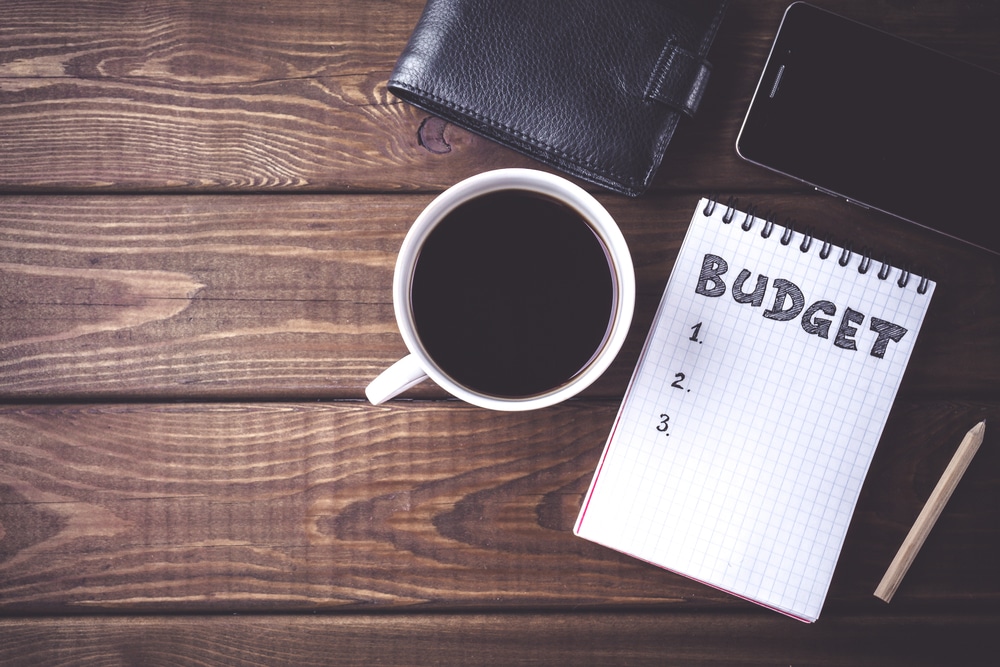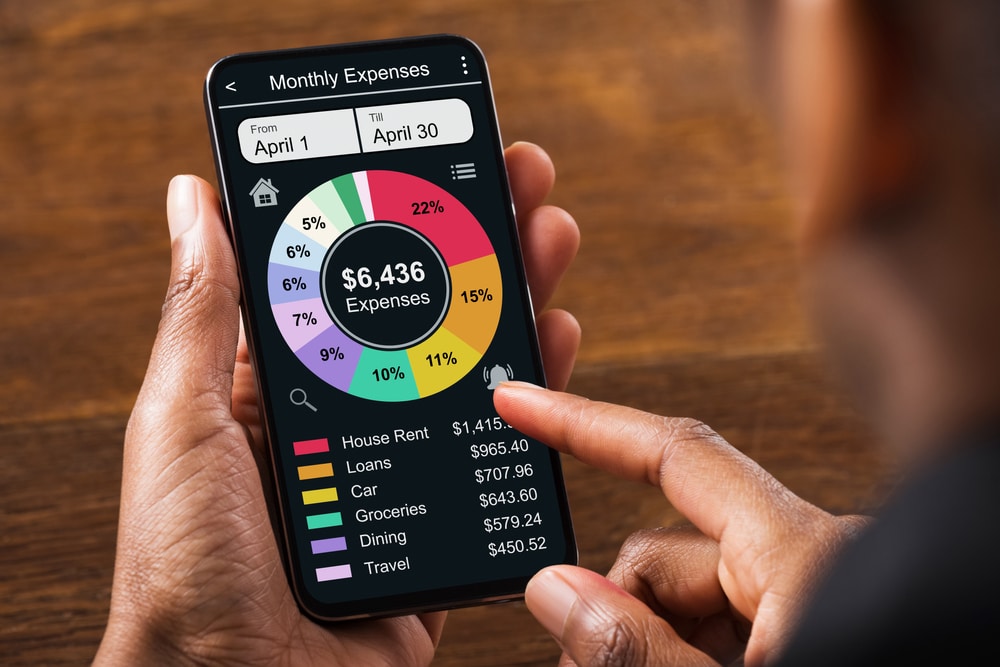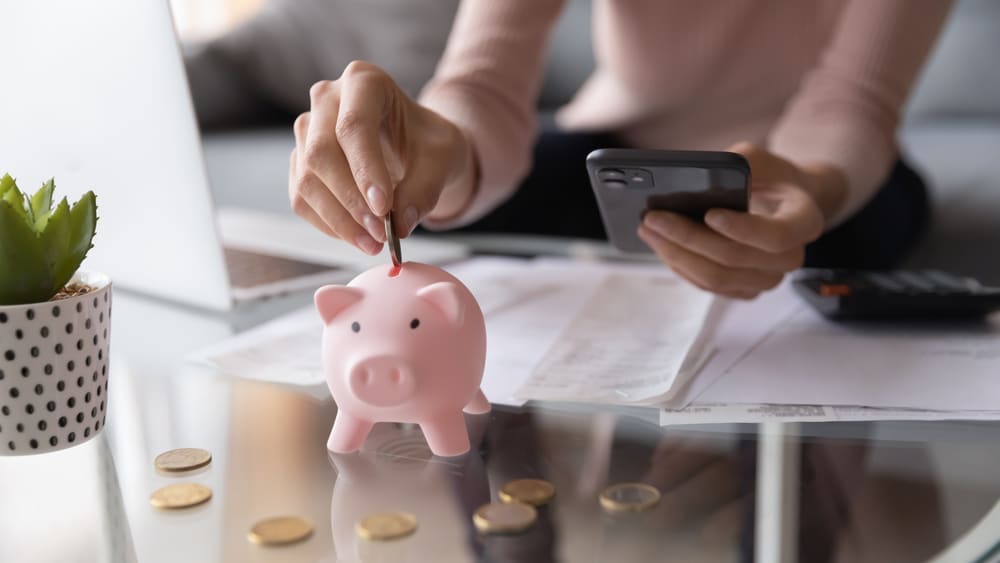Jasmine Birtles
Your money-making expert. Financial journalist, TV and radio personality.

October is Attention Deficit Hyperactivity Disorder (ADHD) awareness month. It is important to discuss the relationship between ADHD and money and the potential impacts on managing finances. According to the NHS, ADHD is a condition that impacts people’s behaviour.1
According to the National Institute for Health and Care Excellence, approximately 3% to 4% of the adult population in the UK have ADHD.2 That is almost 2 million adults. Although ADHD can present itself differently in every individual, symptoms include inattentiveness, such as difficulty focusing and concentrating, and hyperactivity and impulsiveness. These traits can present in different ways.
In this article, we will be discussing the ways in which ADHD can impact every day and life and finances.

According to CHADD, managing finances can be a challenge for people with ADHD. Symptoms such as procrastination, disorganisation and impulsivity can create problems with money.3
Research shows many people living with ADHD find it can have an impact on their finances. YouGov spoke to 506 people living with ADHD to understand their experiences with managing personal finances. The results were fascinating, with a number of key findings coming to light.
The survey showed almost two-thirds (65%) of those with ADHD say the condition makes managing finances more difficult. The biggest issues they face include impulsive spending (58%), struggling to budget (51%) and struggling with money saving (49%).
Additionally, the results showed 76% of people with ADHD are twice as likely to suffer from anxiety surrounding their personal finances, compared to just 38% of the general population.
Similarly, those with ADHD are almost three-times more likely to struggle with debt (31%) than those who do not have the condition (11%), and are almost three times likely to miss bill payments than the general population also.4
Charity CHADD has lots of useful information and guidance for those with ADHD, especially when it comes to money management. They provide useful resources such as fact sheets which contain plenty of strategies and tips to help you with your personal finances.
These include focusing on expenses and goals, minding your debts and saving and spending. They also offer a money management schedule to help you stick to your financial goals.
For those with ADHD, there may be many things which are difficult to keep up with when it comes to financial matters. These may include keeping track of bank balances and your expenses, spending and large credit card balances, difficulty in organising bills and taxes and avoiding late payments.5
CHADD recommends keeping a record of what you buy to help curb impulsive spending. Perhaps you could have a notebook dedicated to writing down what you buy and when, and how much it cost. You could even write it down on your phone to add to it instantly when you are on the go. Remember to include what you buy online, also.
It may be tedious at first to track your spending, especially when tracking very small purchases. Even if you don’t keep a record of every single purchase, or forget from time to time, you will still be able to see certain spending patterns emerge. You will also be able to note fixed expenses, such as your utility bills or home payments and separate them from your variable expenses. Variable expenses include items such as food, petrol or clothing, which range from day to day.
We all have different goals when it comes to money. You may want to save up for a particular item, or want to make sure you can save enough to cover your monthly outgoings. Whatever it is you have in mind, CHADD recommend splitting your goals into three categories:
Break down your goals into small, manageable steps. This way, they aren’t as overwhelming and can be gradually worked on at a pace which suits you.

We have all committed an impulse-spend from time to time. Splurging on something that we can’t resist or adding something to your basket last-minute when you are standing in the queue in a shop. But for adults with ADHD, curbing these impulses can be challenging.
CHADD offer some great tips on how to manage these impulses. Here are some of the tips they give:
You can download the full factsheet here.
According to research exploring the relationship between ADHD and financial distress, adults with ADHD face more difficulties paying bills, use credit cards more compulsively, and are more likely to use very high-interest-rate borrowing, such as payday loans, than those in the general population.6
Credit card debt can easily add up, with balances building from interest and late payment fees. They may be easy to use, but credit cards can promote impulse spending, make it harder to save money and make it easier to spend more money.
If you feel your credit spending is starting to become an issue, consider putting your credit cards in a safe place and leaving them at home when you go shopping. Similarly, have a trusted friend or loved one keep your card safe for you. You can have a conversation with them about the purchase before you get it back from them.
You can download the full information pack here.

In this day and age, there are plenty of apps to help you complete tasks and manage your money more easily at the tip of your fingertips. The digital age has bought with it a hoard of useful tools to suit everyone.
Here are some of the best apps to manage daily tasks and keep your finances in order.
Remember The Milk is an innovative and easy-to-use app that was birthed in 2005 from the minds of two disorganised individuals from Australia. Tired of forgetting things – including buying milk – they created a smart to-do app for busy people.
Simply add tasks to your to-do list, entering your tasks in one line. Super-fast and easy to add to your to-do list, you can add a deadline or due date, tick whether it is a priority task, repeat certain tasks, add tags and more.
Adding to your list is one thing, but remembering to do the tasks is another. Luckily, you can get reminded of your tasks anywhere, including email, text, instant message an even via Twitter! If you have a smart speaker in your home, you can connect to the app and get your Alexa or Google Assistant to give you a gentle nudge.
You can create as many lists as you want to and break your list down into subtasks to make it more manageable. Subtasks can even have their own subtasks, too! The world is your oyster.
If you want to get your friends or family involved in order to help you stay on track, you can share your tasks and to do lists. They can remind you to complete your tasks, too.
Remember The Milk is free, but you can upgrade to the Pro version for $39.99 AUD a year – approximately £22.
You Need A Budget (YNAB) helps you take back total control for your finances in an easy way. The YNAB app uses the tag line “Stop living paycheck-to-paycheck, get out of debt and save more money”, which is a promising start.
The app uses a four-rule method to help you organise your finances and reach your goals faster. You can assign your money to convenient digital envelopes as well allowing you to see all your money in one place. We all have multiple bank accounts, and any credit card accounts or loans can make things complicated. So being able to see everything in one central place is a huge bonus.
You can set yourself a target and pursue your money goals. The app allows you to plan for any non-monthly bills, preventing late fees and increased payments. Plus, if you live with someone or want to budget with someone else, you can get a shared view of your finances to make every day budgeting a little easier.
You can get a 34-day free trial of YNAB. If you decide the app isn’t for you, you can cancel your subscription no questions asked. If you find the app is useful to you, you can pay an annual fee of $99 USD (approx. £88) or pay monthly at the price of $14.99 (approx. £13.35).
Snoop is a free-to-use money management and budgeting app. It helps you track your spending, cut your bills and take back control of your finances.
Snoop does exactly what it says on the tin – it snoops. It looks at all of your spending, tracks your habits and notifies you of increases and decreases in your bills and direct debits. It combines all of your bank accounts and credit cards, putting all of your information in one place.
The app can also help you save money in more ways than one. Snoop sources discounts on a range of things, from food delivery services to finding cheaper deals for your broadband. Alongside this, Snoop sends you daily money-saving suggestions tailored to your spending habits.
It is easy to miss things on your bills and bank statements, so Snoop highlights any anomalies or items which may require your attention. You are also given a monthly analysis of your spending, as well as an all-time analysis, allowing you to see how your spending behaviours change the more you use the app.
Snoop is a free app, however you can upgrade to Snoop Plus for £3.99 a month, to access unlimited spending reports, spending and refund alerts.

Goodbudget is a budget tracker which takes the envelope-saving method and brings it into the digital age. Gone are the days of having multiple envelopes scattered around stuffed with cash. You can make digital envelopes for all of your spending categories, from rent and bills to groceries and date night. It doesn’t just help you track your spending, but helps you plan your spending, too.
You can also use the digital envelope saving method Goodbudget provides to budget for longer-term savings goals, such as saving for a house deposit or a new car.
When you come to make a purchase, you can spend from the relevant envelope. Eating out with friends? You can take the money from the correct category. But only spending from the relevant envelope, you can quickly learn any bad habits you have when it comes to spending, and begin adjusting your everyday life to ensure you don’t overspend on a particular category.
Goodbudget also helps you track any debts and helps you manage them more easily. You can use the app on your computer or smart phone, to track your spending on the go. You can also share your budgets with your household to ensure you are all on track and avoid awkward miscommunications.
Goodbudget is a free to use app, however you can subscribe to Plus for £6.67 per month or £58.40 annually.
Monefy is a personal finance app which allows you to more easily manage your money. It makes budgeting simple by breaking down your expenses in a simple and understandable way. It takes the guess work out of saving money and helps you identify key spending patterns to allow you to effectively save money.
You can easily track your transactions and manually add any expenditure to your account as well as allowing you to categorise spending. The categories are carefully curated to allow ease of use and help you identify key areas of expenditure. You can even add custom categories if you can’t find what you are looking for.
The app is free, but you can subscribe to access extra features for £49.99 per annum.
